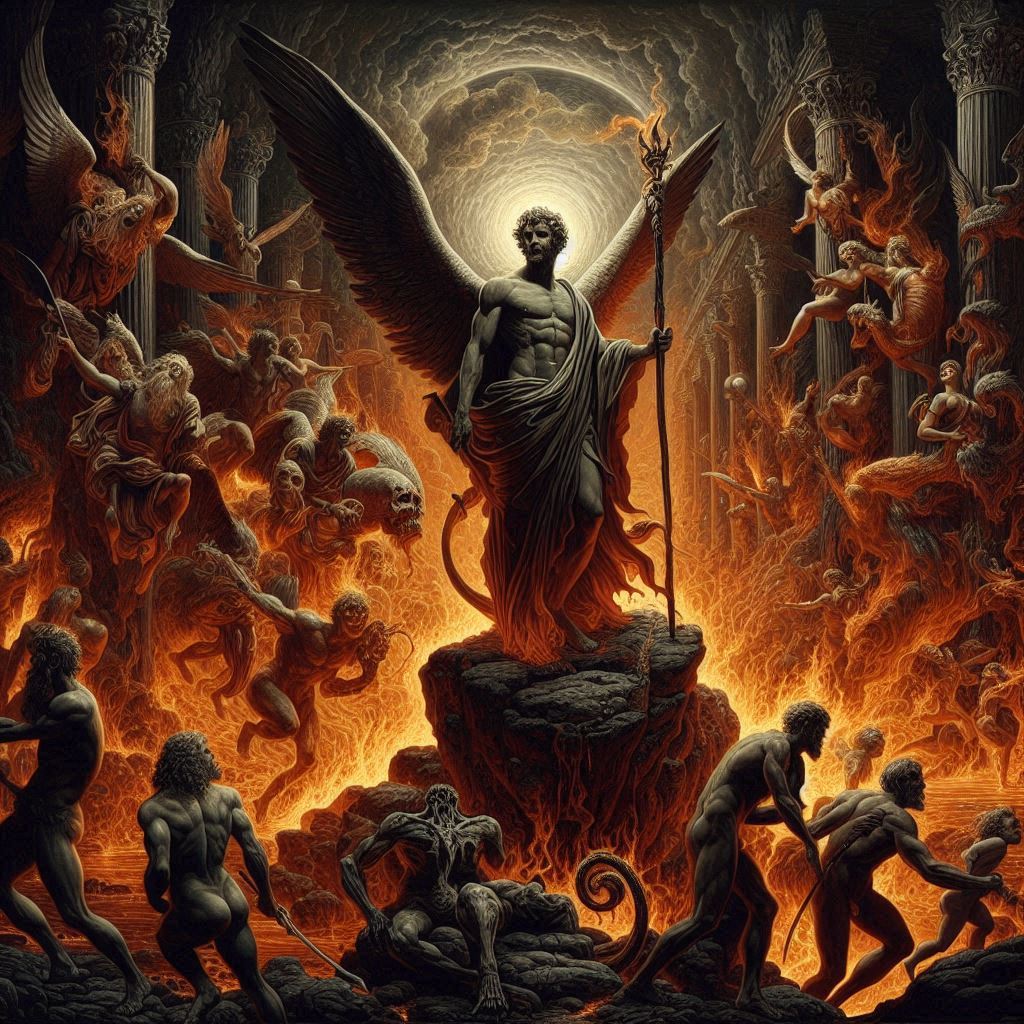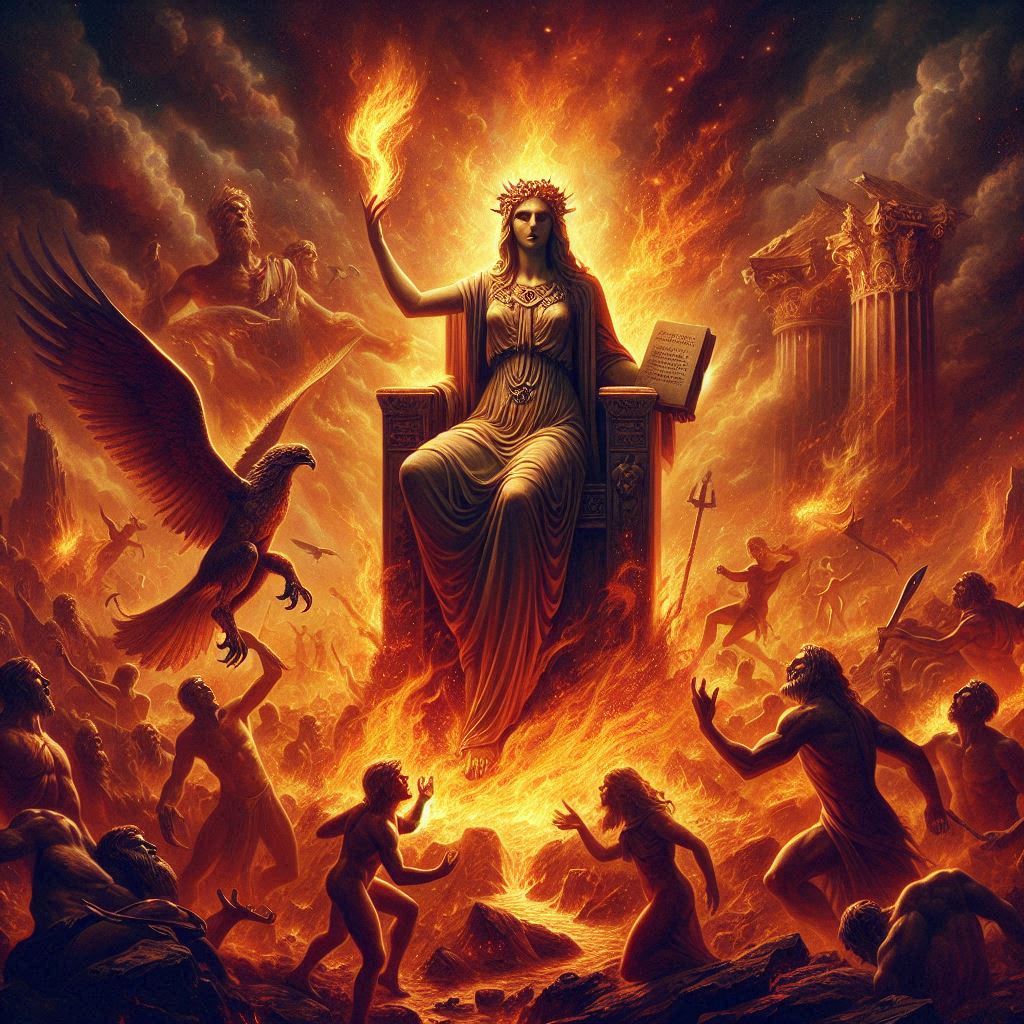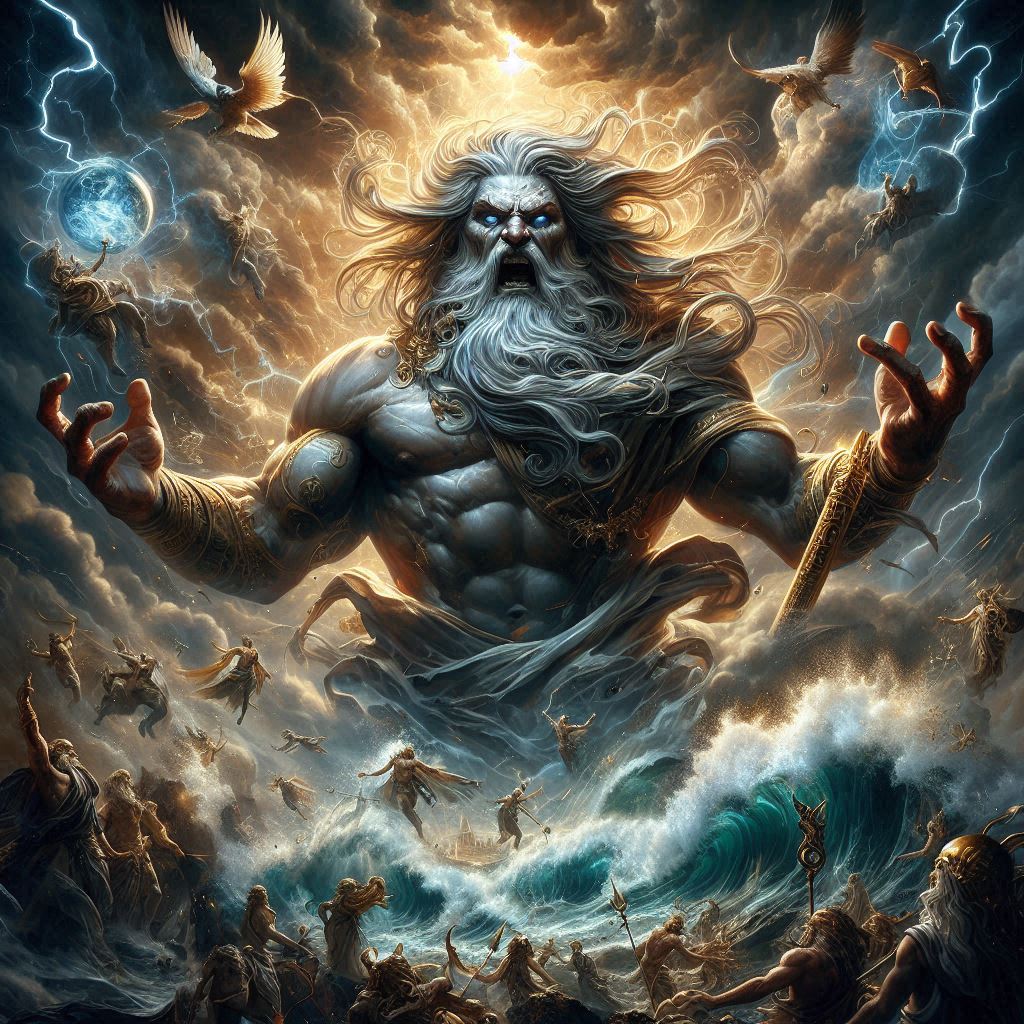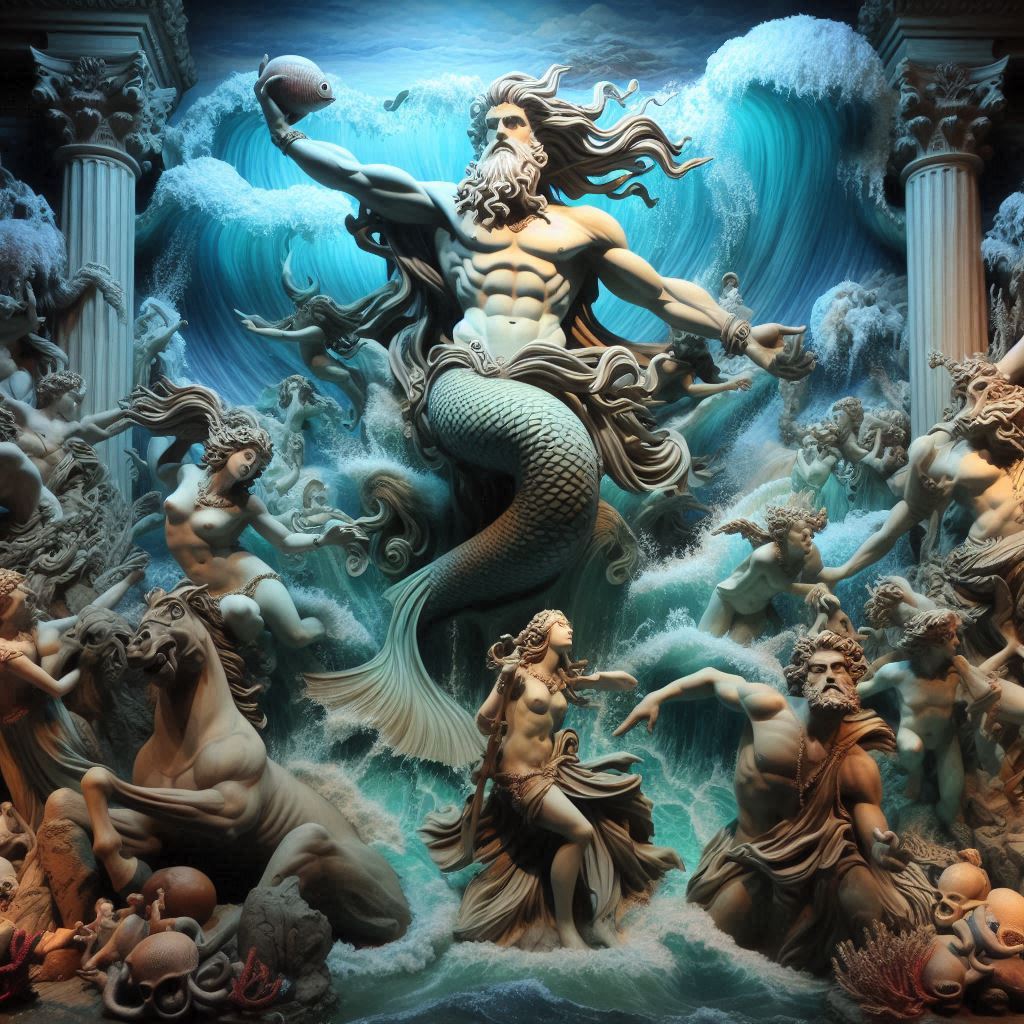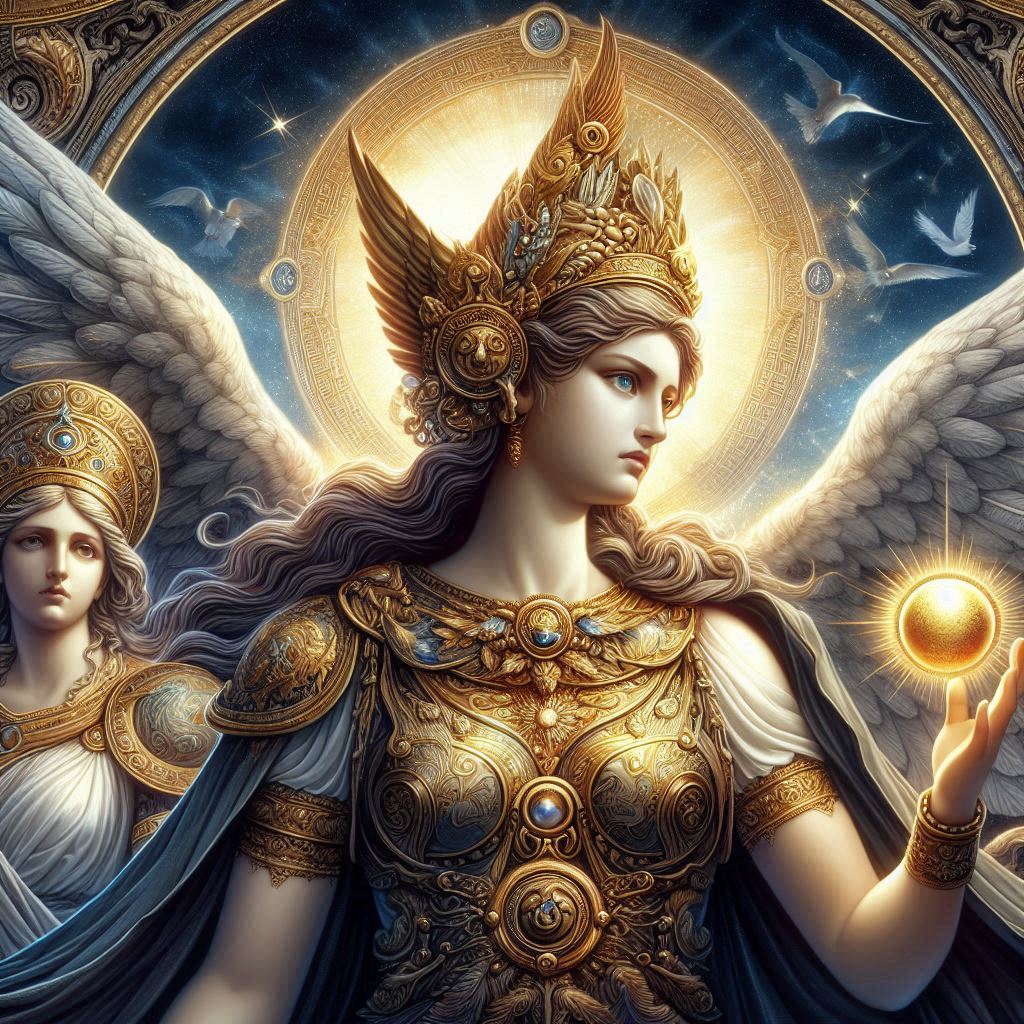In Greek mythology, the Oracle of Delphi is one of the most enigmatic and revered institutions, serving as a conduit between mortals and the divine. Nestled on the slopes of Mount Parnassus in central Greece, the sanctuary of Delphi housed the Oracle, a priestess known as the Pythia, who delivered prophecies and advice to pilgrims seeking guidance on matters of war, politics, and personal destiny. The Oracle’s prophecies, shrouded in mystery and ambiguity, held immense sway over the ancient Greeks, shaping the course of history and myth alike. Exploring the mythology and symbolism of the Oracle of Delphi offers insights into ancient Greek beliefs about fate, divination, and the relationship between gods and mortals.
The origins of the Oracle of Delphi are steeped in myth and legend, with various accounts tracing its founding to divine interventions and heroic deeds. According to myth, the site of Delphi was originally sacred to Gaia, the Earth goddess, before it came under the control of Apollo, the god of prophecy, music, and healing. In one version of the myth, Apollo defeats the serpent Python, who guarded the site, and claims Delphi as his own, establishing it as a sanctuary and center of worship.
The Pythia, the priestess of the Oracle, served as the intermediary between Apollo and the mortal realm, channeling the god’s divine wisdom and insights through cryptic utterances and prophetic visions. The Pythia’s prophecies were highly sought after by kings, generals, and ordinary citizens alike, who journeyed to Delphi to consult the Oracle on matters of great importance, such as military campaigns, political alliances, and personal decisions.
The process of consulting the Oracle was a solemn and elaborate ritual, beginning with purification rites and offerings to the gods to ensure the Pythia’s receptivity to divine inspiration. The supplicant would then present a question or request to the Pythia, who would enter a trance-like state and commune with Apollo, often speaking in riddles or ambiguous language that required interpretation by priests and interpreters.
The Oracle’s prophecies were delivered in various forms, including cryptic utterances, symbolic gestures, and enigmatic symbols inscribed on laurel leaves known as “sibylline leaves.” These prophecies were open to interpretation and often required careful analysis by priests and scholars to discern their meaning and relevance to the supplicant’s question or situation.
One of the most famous prophecies of the Oracle of Delphi is the admonition to King Croesus of Lydia, who sought guidance on whether to wage war against the Persian Empire. The Oracle famously declared that if Croesus went to war, he would destroy a great empire. Interpreting this prophecy as a favorable omen, Croesus launched a military campaign against Persia, only to suffer a crushing defeat and the downfall of his own empire. The Oracle’s prophecy, while technically accurate, demonstrated the ambiguity and complexity of divine revelation and the dangers of misinterpretation.
The Oracle of Delphi also played a significant role in shaping the course of Greek mythology and legend. Many of the greatest heroes and figures of Greek mythology, including Heracles, Oedipus, and Achilles, consulted the Oracle for guidance on their quests and destinies. The Oracle’s prophecies often foretold tragic outcomes and dire consequences, underscoring the inevitability of fate and the limits of mortal agency.
The Oracle’s association with Apollo, the god of prophecy and enlightenment, imbued it with a sense of divine authority and wisdom. Apollo was believed to speak through the Pythia, offering insights into the workings of the cosmos, the will of the gods, and the mysteries of fate. The sanctuary of Delphi, with its majestic temple, sacred spring, and panoramic views of the surrounding landscape, served as a focal point for religious pilgrimage, spiritual contemplation, and communal worship.
The Oracle of Delphi was not without its controversies and challenges. Over the centuries, the sanctuary faced political intrigue, corruption, and manipulation by powerful individuals and factions seeking to influence its pronouncements for their own ends. Despite these challenges, the Oracle remained a revered and influential institution, revered by Greeks and foreigners alike for its perceived ability to divine the future and offer counsel on matters of great importance.
The decline of the Oracle of Delphi coincided with the rise of Christianity and the spread of Roman influence in the ancient world. With the advent of Christianity, the sanctuary of Delphi gradually lost its prominence and influence, as the pagan rituals and beliefs associated with the Oracle fell out of favor with the ruling authorities. The sanctuary was eventually closed in the 4th century CE, marking the end of an era and the passing of a legendary institution.
The legacy of the Oracle of Delphi endures to this day, as a symbol of ancient wisdom, mystery, and the enduring quest for divine guidance. The sanctuary of Delphi, with its archaeological ruins and remnants of its former glory, continues to attract visitors from around the world, drawn by the allure of its mythical past and the echoes of its prophetic pronouncements. The Oracle’s prophecies, though often ambiguous and open to interpretation, offer insights into the complexities of human destiny, the mysteries of the cosmos, and the eternal quest for meaning and enlightenment.
